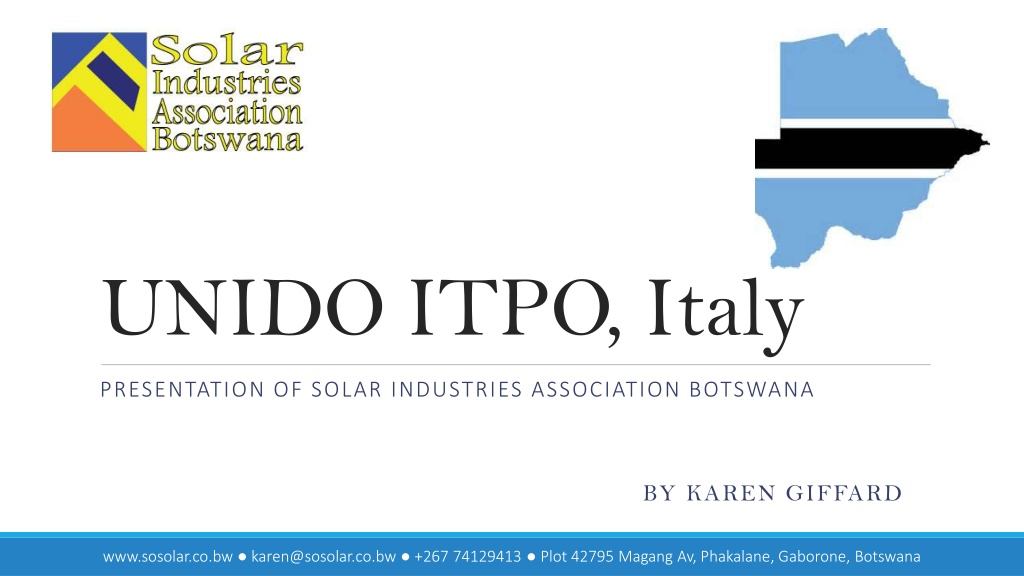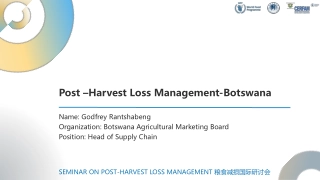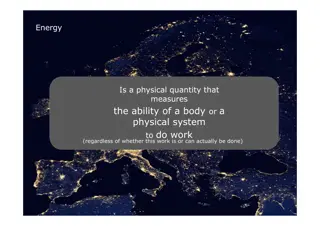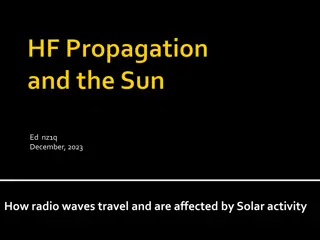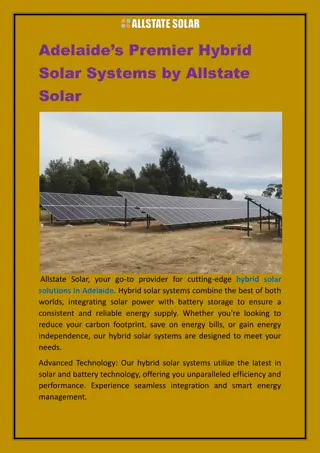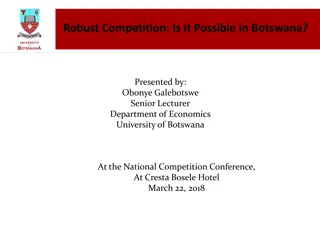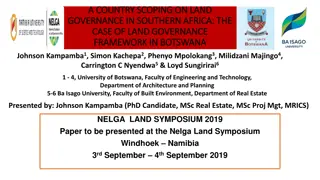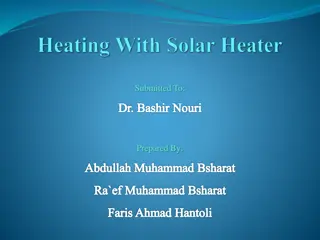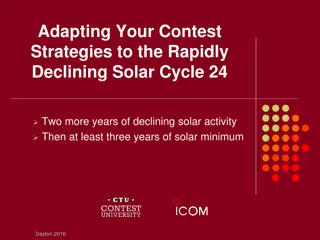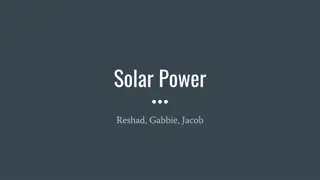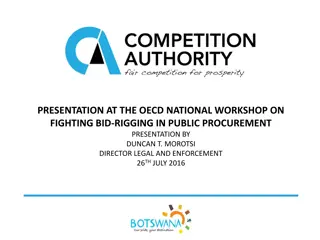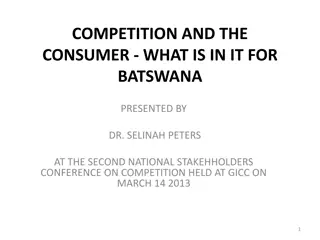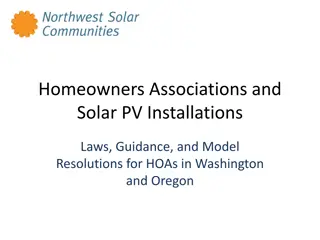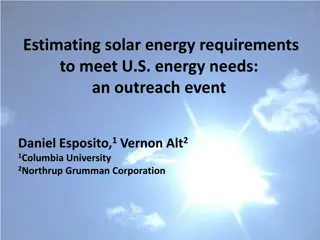Solar Industries Association Botswana Presentation Overview
Solar Industries Association Botswana (SIAB) was established in 2006 and revitalized in 2015 to promote the widespread use of solar energy in Botswana. With objectives like disseminating industry information and fostering high standards of practice, SIAB aims to advance the solar sector in the country. The association has notable members and collaborates closely with various entities to drive solar energy adoption. Botswana's current energy landscape includes a minimal contribution from solar energy, but there are initiatives and projects underway to increase its utilization, particularly in rural areas. The country has shown readiness to embrace renewables, with targets set for emission reduction and a growing interest in green technology. The future holds promising potential for solar energy development in Botswana.
Download Presentation

Please find below an Image/Link to download the presentation.
The content on the website is provided AS IS for your information and personal use only. It may not be sold, licensed, or shared on other websites without obtaining consent from the author.If you encounter any issues during the download, it is possible that the publisher has removed the file from their server.
You are allowed to download the files provided on this website for personal or commercial use, subject to the condition that they are used lawfully. All files are the property of their respective owners.
The content on the website is provided AS IS for your information and personal use only. It may not be sold, licensed, or shared on other websites without obtaining consent from the author.
E N D
Presentation Transcript
UNIDO ITPO, Italy PRESENTATION OF SOLAR INDUSTRIES ASSOCIATION BOTSWANA BY KAREN GIFFARD www.sosolar.co.bw karen@sosolar.co.bw +267 74129413 Plot 42795 Magang Av, Phakalane, Gaborone, Botswana
Introduction of SIAB Established in 2006 revitalised in 2015 CHAIRMAN Felix Chavaphi Energy Systems Group Aim of the association is to facilitate wide scale use of solar in Botswana Main Objectives: Dissemination of information pertaining to the solar industry Foster high standards of practice in design, installation, manufacture and maintenance Cultivate highest ideals and ethics in industry TREASURER SECRETARY Sofia Figuerua Kate Mphaga ALTENOVA SolarOne EXECUTIVE MEMBER EXECUTIVE MEMBER Herman Ngwenya Karen Giffard Capricorn Solar So Solar 11 existing members including Executive Committee MEMBERS Direct Motion Control Close working relationship with Department of Energy Chloride Botswana Oriental Electrical Memorandum of Understanding with GIZ and German Solar Association Solar International Botswana Kebo Holdings ..
Botswana Overview Solar estimated to make up less than 1% of energy mix with 75% made up of fossil fuels and 25% biomass/wood fuel. Electricity makes up approximately 26% total energy consumption. 3200 hours of sunshine and average of 320 clear sunny days per year. GHI (Global Horizontal Irradiance), the country-wide average is 6.17 kWh/m /day. (RE Strategy) COUNTRY READINESS: COUNTRY READINESS: Target 15% emission reduction by 2030 driving focus on renewables Recent EOI released for 100MW interest & 20 Hybrid Mini-grids Evidence of willingness from previous project record & strategy development Shift in focus to include green technology with ministry name change Relatively good infrastructure Reasonably high public familiarity with technology Track record of stability and good governance Areas still not connected to the grid with public facility electrification as a focus Plans to increase electricity tariffs to become more cost reflective of generation Private sector participation expected to rise Image credit to countryreport.com
Photovoltaic Overview PAST BPC Lesedi : An arm off BPC focused on solar development to supply electricity services to rural areas. Project failed due to the innovative model being ahead of the technology. PRESENT 1.3MW Phakalane Grid Connected System. 20KW Grid Connected Mokolodi Research Project Off-grid lodges and farms (<5MW total) 21 Mini-grid schools (estimated 1MW total) FUTURE 20 Hybrid (diesel/solar) Mini-grid out of potentially 96 rural villages 145 000 households Tier 1 small systems Pumping water in remote farm areas Eco lodges & residential 100MW EOI Photo credit to Mike Mooiman Botswana Energy Blog
Thermal Overview PAST Government of Botswana installed solar water heaters on all public Institutions including schools, hospitals, police housing, government housing, military camps and universities. PRESENT Not quantified but quite significant. Suggested 90% failure rate due to lack of standards, incorrected technology, lack of procurement framework and maintenance. FUTURE 100MW EOI CSP Roll out of residential solar water heaters, potentially incentive driven or with financial support Agricultural solutions including green house technology Building heating/cooling solutions
Potential Outcomes Joint venture partnerships for EOI projects Supply chain from manufacturers or distributors of Italian innovation Capacity building or training opportunities Consulting for framework development as per local market requirements Quality performance and testing Innovative turn-key solutions Financial support to enable growth in local market, capacity or framework development Local production potentially for regional market
